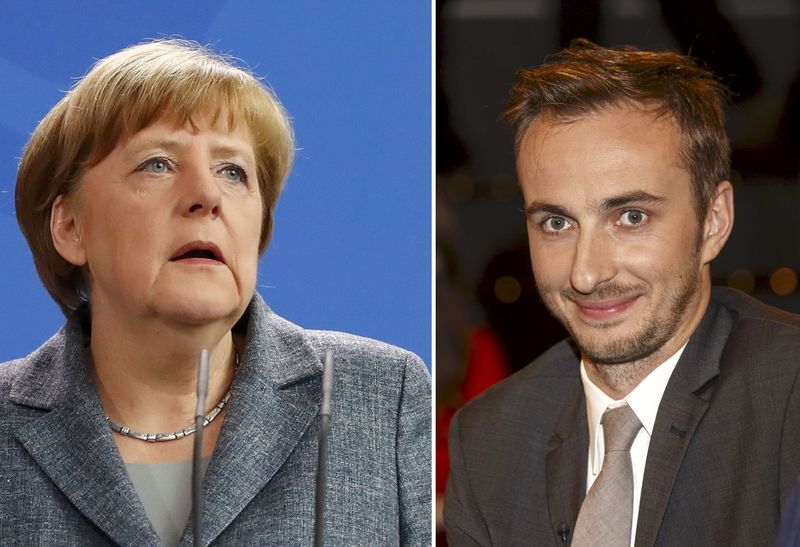BERLIN (Reuters) - A German comedian under investigation by prosecutors for mocking Turkish President Tayyip Erdogan accused Chancellor Angela Merkel on Tuesday of "filleting" him and serving him to a despot for tea in his first public comments since the row broke.
Merkel drew heavy criticism for allowing German prosecutors to pursue a case against satirist Jan Boehmermann after he recited a poem on television in March suggesting Erdogan engaged in bestiality and watched child pornography.
Erdogan, a crucial partner for Merkel in tackling Europe's migrant crisis, had demanded Germany press charges against Boehmermann. Erdogan is known for his sensitivity to criticism and Turkish prosecutors have opened over 1,800 cases against people for insulting him since he became president in 2014.
Under Germany's criminal code, insults against foreign leaders are not allowed but the government can decide whether to authorise prosecutors to go ahead.
After weeks of silence, Boehmermann pulled no punches in an interview released in part on Tuesday by Die Zeit weekly.
"The chancellor must not wobble when it's a matter of freedom of opinion," he told Die Zeit in the interview, which will be published in full on Wednesday.
"But instead, she filleted me, served me for tea to a highly strung despot and made me into a German Ai Weiwei," he said, referring to the Chinese dissident artist.
The affair, which turned into a diplomatic spat, was a headache for Merkel as it made her vulnerable to accusations she was getting too cosy with Erdogan over a controversial European Union deal with Turkey to stem the flow of refugees into Europe.
Critics had already accused her of ignoring human rights violations and press freedoms in Turkey, a candidate for EU membership, in order to win its cooperation over the migrants.
Merkel is widely seen as causing the problem in the first place because she described the poem to Turkish Prime Minister Ahmet Davutoglu as "deliberately insulting", something she herself has said was "in retrospect a mistake".

Prosecutors in the western German city of Mainz who are dealing with the Boehmermann case said it was unclear when a decision would be made on whether to go ahead with the case.